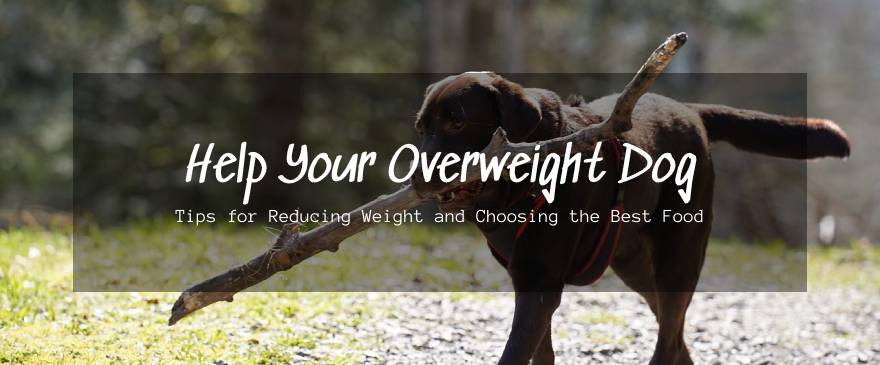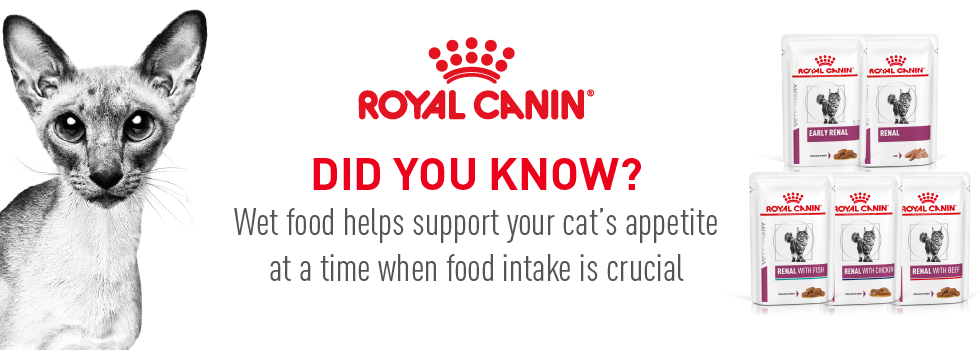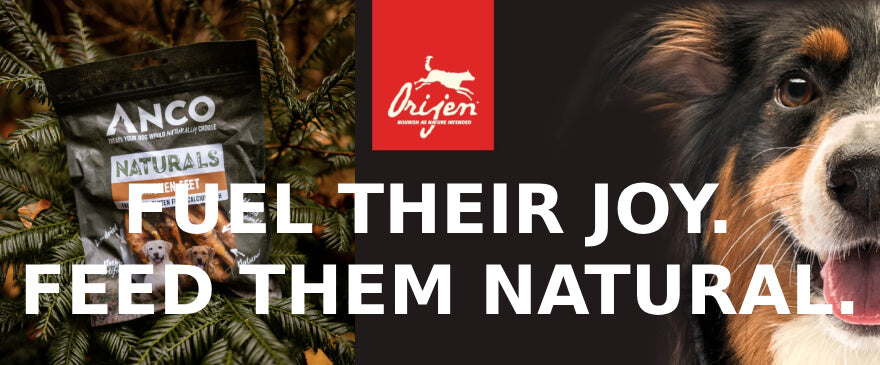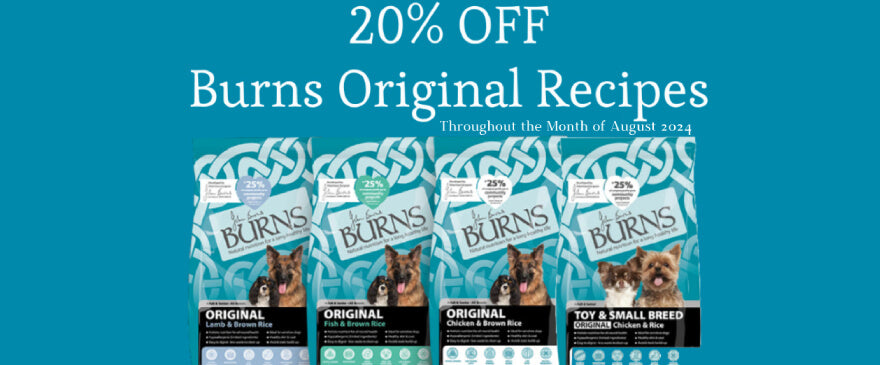FREE SHIPPING OVER £49 T&C'S APPLY
Help Your Overweight Dog: Tips for Reducing Weight and Choosing the Best Food
July 12, 2024 7 min read 0 Comments

Help Your Overweight Dog: Tips for Reducing Weight and Choosing the Best Food
As a responsible dog owner, ensuring your furry friend maintains a healthy weight is crucial for their overall well-being and longevity. Overweight dogs are at risk of various health issues, including joint problems, diabetes, and heart disease. At PetnPony, we're committed to helping you understand the causes of weight gain in dogs, how to reduce their weight effectively, and the best foods to support their journey to a healthier life.
When your dog carries extra weight, it can affect not only their physical health but also their energy levels, mobility, and even their mood. An overweight dog may struggle with everyday activities, such as running, jumping, or climbing stairs, and can become more susceptible to injuries and chronic pain. Additionally, obesity in dogs can shorten their lifespan and diminish their quality of life, making it all the more important to address weight issues promptly and effectively.
Helping your dog achieve and maintain a healthy weight involves a combination of proper diet, regular exercise, and ongoing monitoring. It's essential to be proactive and attentive to your dog's needs, making adjustments as necessary to ensure they stay on the right track. This comprehensive guide will provide you with the knowledge and tools needed to make informed decisions about your dog's diet and lifestyle, ultimately helping them lead a healthier, happier life.
Why Is My Dog Putting on So Much Weight?
There are several reasons why your dog might be gaining weight. Understanding these can help you take the right steps to manage their weight effectively. Here’s a more detailed look at the common causes of weight gain in dogs:
Overfeeding
Overfeeding is one of the most common reasons for weight gain in dogs. Many dog owners unintentionally overfeed their pets, often by:
- Free-Feeding: Leaving food out all day can lead to overeating. Dogs may eat out of boredom rather than hunger.
- Treats and Table Scraps: It’s easy to give in to those pleading eyes, but treats and human food can add a lot of extra calories to your dog’s diet.
- Incorrect Portion Sizes: Not measuring your dog’s food can result in overfeeding. Follow the feeding guidelines on the dog food packaging, but also consider your dog's activity level and body condition.
Lack of Exercise
Regular physical activity is crucial for maintaining a healthy weight. A sedentary lifestyle can cause your dog to put on extra pounds. Factors contributing to insufficient exercise include:
- Busy Lifestyles: Many pet owners have busy schedules that don’t allow enough time for daily walks and playtime.
- Indoor Living: Dogs that live primarily indoors may not get enough physical activity compared to those who have access to a yard or frequent outdoor activities.
- Breed Characteristics: Some breeds are naturally less active and may need extra encouragement to stay active.
Poor Diet
Feeding your dog low-quality food that’s high in calories and low in nutrients can contribute significantly to weight gain. Key issues include:
- High-Calorie Foods: Many commercial dog foods contain fillers and high-calorie ingredients that are not nutritionally beneficial.
- Lack of Nutrients: Dogs need a balanced diet that includes the right mix of protein, fat, and carbohydrates, as well as vitamins and minerals. Poor-quality food often lacks this balance.
- Overfeeding Treats: Even healthy treats can add up if given too frequently. Stick to low-calorie treats and keep them to a minimum.
Medical Conditions
Certain medical conditions can cause weight gain in dogs, regardless of their diet or exercise levels. Some of the most common conditions include:
- Hypothyroidism: This condition occurs when the thyroid gland doesn’t produce enough thyroid hormone, leading to a slower metabolism and weight gain. Symptoms may include lethargy, a dull coat, and cold intolerance.
- Cushing's Disease: Caused by an overproduction of cortisol, this hormonal disorder can lead to increased appetite, weight gain, and a pot-bellied appearance. Other signs include increased thirst and urination, and thinning skin.
- Diabetes: In some cases, diabetes can lead to weight gain, particularly if the condition is not well-managed. Increased hunger and thirst are common symptoms.
Age
As dogs age, their metabolism naturally slows down, making them more prone to weight gain. Older dogs may also:
- Experience Reduced Activity: Senior dogs often have lower energy levels and may be less inclined to engage in physical activity.
- Develop Joint Issues: Conditions like arthritis can make exercise painful, leading to decreased activity and weight gain.
- Have Changes in Appetite: Older dogs might eat more due to changes in metabolism or other health issues.
How Can I Reduce the Weight of My Dog?
If your dog is overweight, it's important to take action to help them shed those extra pounds. Here are some effective tips:
- Consult Your Veterinarian: Before starting any weight loss plan, consult your vet to rule out any underlying medical conditions and get personalized advice.
- Measure Food Portions: Use a measuring cup to ensure you're feeding your dog the right amount of food. Avoid free-feeding, where food is available all day.
- Choose High-Quality Dog Food: Opt for dog food that is high in protein and low in fat. Look for options specifically formulated for weight control.
- Increase Exercise: Gradually increase your dog's physical activity. Daily walks, playtime, and interactive toys can help burn calories.
- Limit Treats: Treats should be given sparingly and accounted for in their daily calorie intake. Choose healthy, low-calorie treats.
What Foods Cause Weight Gain in Dogs?
Certain foods are more likely to cause weight gain in dogs. It's important to be mindful of what you’re feeding them:
- High-Calorie Treats: Treats that are high in fat and sugar can contribute significantly to weight gain.
- Table Scraps: Human food is often high in calories and not suitable for dogs.
- High-Carbohydrate Dog Foods: Foods that contain a lot of fillers like corn, wheat, and soy can lead to weight gain.
- Fatty Foods: Foods high in fat, such as those containing a lot of oils or fatty meats, should be avoided.
Why Is My Dog Getting Fat but Not Eating?
If your dog is gaining weight but not eating much, it could be due to an underlying health issue. It's important to be aware of these potential reasons and to seek veterinary advice if you suspect there might be a medical problem. Here are some common causes:
-
Hypothyroidism: This condition occurs when your dog's thyroid gland doesn't produce enough thyroid hormone, which slows down their metabolism. As a result, they may gain weight even if they're not eating more. Symptoms can include lethargy, a dull coat, and cold intolerance.
-
Cushing's Disease: This hormonal disorder, also known as hyperadrenocorticism, is caused by an overproduction of cortisol. Dogs with Cushing's disease often exhibit a pot-bellied appearance, increased thirst and urination, and thinning skin along with weight gain.
-
Fluid Retention: Conditions like heart disease, liver disease, or kidney failure can cause fluid retention in the body, leading to weight gain. This type of weight gain is often accompanied by swelling in the abdomen or limbs.
-
Low Activity Levels: Even if your dog isn't eating more, a lack of exercise can lead to weight gain. Dogs that are less active due to age, injury, or lifestyle changes can start putting on extra pounds.
If you notice your dog gaining weight without an increase in food intake, it's crucial to consult with your veterinarian. They can perform a thorough examination and run necessary tests to diagnose any underlying health issues. Early detection and treatment can help manage these conditions effectively and improve your dog's quality of life.
Seeking Veterinary Advice
Whenever you notice unusual weight gain in your dog, especially if it's not accompanied by an increase in food consumption, seeking veterinary advice is essential. Your vet can help determine if there's an underlying health issue causing the weight gain. Here’s why veterinary advice is crucial:
-
Accurate Diagnosis: A veterinarian can accurately diagnose conditions like hypothyroidism, Cushing's disease, or heart disease through blood tests, ultrasounds, and other diagnostic tools.
-
Tailored Treatment Plans: Once an underlying condition is identified, your vet can create a tailored treatment plan that may include medication, dietary changes, and lifestyle adjustments to help manage your dog’s weight and overall health.
-
Preventing Complications: Early intervention can prevent the condition from worsening and causing further complications. For example, managing hypothyroidism early can prevent severe weight gain and associated health issues.
-
Professional Guidance: Your vet can provide professional guidance on the best diet and exercise regimen for your dog, taking into account their specific health needs and conditions.
Remember, maintaining open communication with your vet is key to ensuring your dog stays healthy and happy. Regular check-ups can catch potential health issues early, and your vet can offer valuable advice on keeping your dog at a healthy weight.
What’s the Best Dog Food for Overweight Dogs?
Choosing the right dog food is essential for helping your dog lose weight. Here are five top recommendations available at PetnPony:
- Burns Weight Control: This food is specially formulated to help manage your dog’s weight. It’s low in fat and high in fiber to help keep your dog feeling full while maintaining a healthy weight.
- Royal Canin Light Weight Care: A balanced diet that supports weight management with optimal protein levels and reduced fat content.
- Arden Grange Light: This food contains fewer calories while still providing all the essential nutrients your dog needs.
- Eukanuba Weight Control: Designed for weight control, this food has reduced fat content and L-carnitine to help burn fat.
- Orijen Fit & Trim: A high-protein, low-fat formula that’s ideal for overweight dogs. It’s made with fresh, regional ingredients to support lean muscle mass.
How to Implement a Weight Loss Plan for Your Dog
- Set Realistic Goals: Work with your vet to determine a healthy target weight for your dog and set realistic goals.
- Monitor Food Intake: Keep track of everything your dog eats, including treats and table scraps.
- Increase Physical Activity Gradually: Start with short walks and gradually increase the duration and intensity. Interactive toys and play sessions can also help.
- Regular Weigh-Ins: Weigh your dog regularly to monitor their progress. Adjust their diet and exercise routine as needed based on their progress.
- Stay Consistent: Consistency is key to successful weight loss. Stick to the plan and be patient.
Conclusion
Helping your overweight dog achieve a healthy weight is a rewarding process that can significantly improve their quality of life. By understanding the causes of weight gain, choosing the right food, and implementing a structured weight loss plan, you can support your furry friend in becoming healthier and happier. At PetnPony, we offer a range of high-quality dog foods specifically designed to help with weight management. Visit PetnPony to explore our selection and find the best option for your pet.
Ready to start your dog's weight loss journey? Check out our top recommendations:
- Burns Weight Control
- Royal Canin Light Weight Care
- Arden Grange Light
- Eukanuba Weight Control
- Orijen Fit & Trim
Visit PetnPony today to find the perfect food for your overweight dog and start their journey to a healthier, happier life.
Also in PetnPony Blog

Chronic Kidney Disease in Cats - Royal Canin
February 24, 2025 3 min read 0 Comments
Cats - like dogs and humans - have two kidneys situated in the abdomen close to the spine and last rib. They are vital organs, continually filtering toxins and waste materials from the blood and producing urine to enable those toxins to be excreted from the body.

Fuel Their Joy, Feed Them Natural: Discover Premium Dog Foods at PetnPony
August 08, 2024 4 min read 0 Comments

20% Off Burns Original Recipes at PetnPony this August! Natural, Hypoallergenic, and Delicious!
August 05, 2024 3 min read 0 Comments

